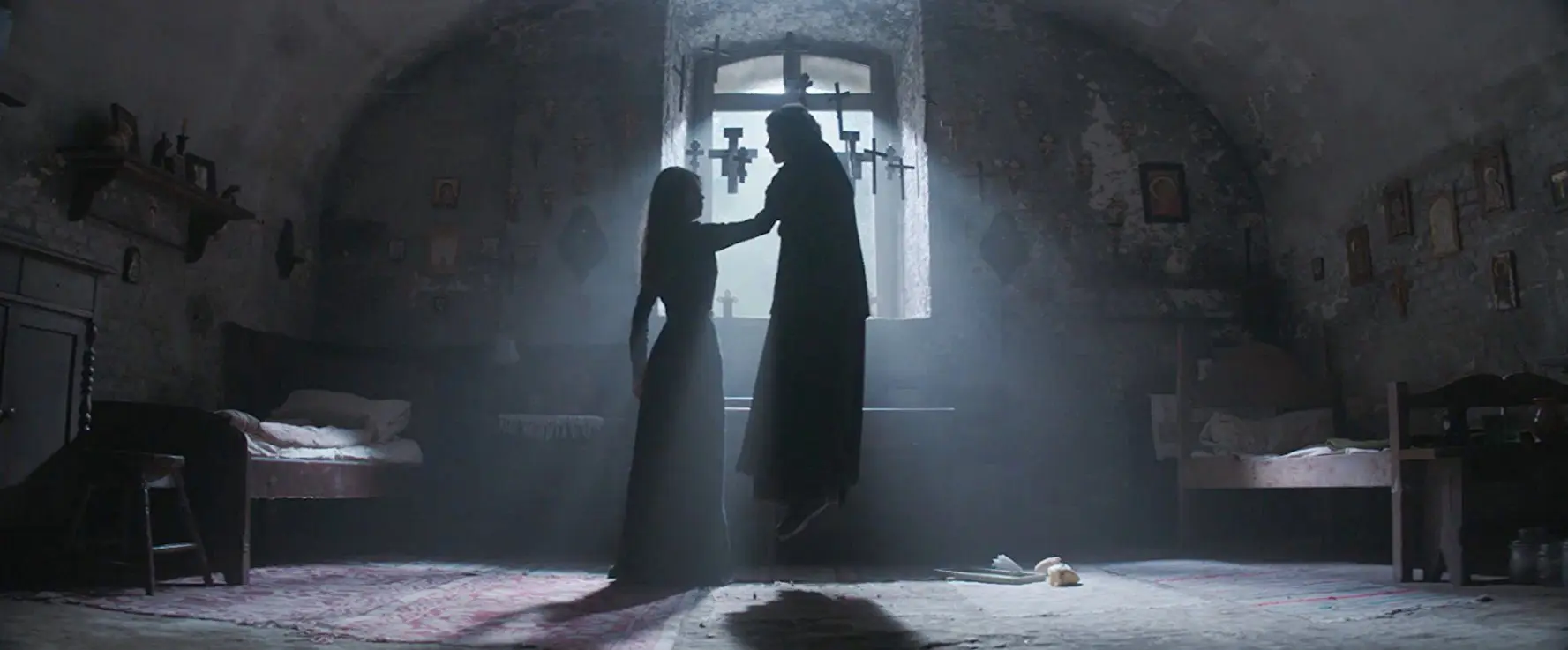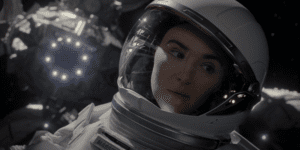Just as there are some fates worse than death – such as, let’s say, being possessed by an ancient, body-hopping evil – there are some films that are worse than “bad”. The Crucifixion is such a film – a lazy, derivative, clichéd, routine, dense and lifeless bit of typical October genre fare that is worthy of the most damning criticism one can bestow on any piece of entertainment media: It’s completely fucking boring.
This shouldn’t be the case. The Crucifixion is directed by Xavier Glens, the French filmmaker responsible for the gore-soaked Frontier(s) in 2007 and the bleak post-apocalyptic thriller The Divide in 2011. (He also made Hitman, but let’s keep that between us.) Gens is an ambitious visualist with an eye for memorably disturbing imagery, which makes it odd that he’d sign on to make such hackneyed tripe as this. He’s even working from a screenplay co-written (presumably on the back of a napkin) by twin scribes Chad and Carey W. Hayes, who are the pair behind The Conjuring series. (They also wrote The Reaping in 2007, but, again, the less said about that the better.) It stars Sophie Cookson, aka Roxy from Kingsman, who is an all-too-often underused actress nonetheless possessed of undeniable talent and screen presence. So what on earth went wrong?
I suppose you could make a case that nothing “on earth” went wrong at all, and it’s once again the fault of Hell’s tortuously played-out minions. Here they’re bedevilling the Romanian countryside, where Cookson, playing an American investigative reporter named Nicole Rawlins, has turned up to snoop into the death of a nun, Sister Adelina Marinescu (Ada Lupu). Turns out that before her death, Sister Marinescu was behaving strangely and violently, and that a local priest had conducted an unauthorised exorcism which involved tying her to a big wooden cross. Nicole, an ardent sceptic, believes this is a load of old bollocks, and hopes to write a story exposing an unsavoury part of Catholicism that the Church would rather see kept under wraps.
Things, of course, are not what they appear to be, but then again in movies like this they never are. Cue Nicole experiencing strange visions and psychic events, gradually realising she’s being stalked by some kind of malevolent entity, and teaming up with a useful local, Father Anton (Corneliu Ulici), to discover all the mysterious ways in which God apparently works.
And that’s the thing, really – instead of scaring or at least entertaining an audience, The Crucifixion instead endeavours to make some kind of banal theological point. Nicole repeatedly engages in rudimentary religious debates with Father Anton – these are insufferably tedious, but they’re also so heavily tilted in his favour that it seems pointless for Nicole to be there or have an opinion. This woman is supposed to be a ruthless interrogator of the facts, but The Crucifixion treats her as a hopeless airhead; the priests and parishioners she interviews dismiss her opinions and refuse to take her seriously as an intelligent professional. The character exists solely to be undermined, demeaned and patronised in service of a wishy-washy Sunday School theological thesis. The painfully few instances in which she is treated with a basic level of respect are purely functional; they shunt the plot forwards along its well-worn tracks, and leave Nicole undeveloped and uninteresting.
Then again, none of the characters are interesting, and neither is the tired scenario or its formulaic progression. The backstory is doled out in big, ungainly slabs of talky, info-dump exposition, most of it delivered by actors speaking in another language or an accent that’s not their own. It’s flat and workmanlike, unbefitting of a stylish director like Gens, who at least finds time for a climactic exorcism sequence that almost makes his presence seem worthwhile. But The Crucifixion is a flat-pack, self-assembly genre film that anyone could have slotted together; you’ve seen it before, you’ll see it again, and you’ll wonder, as I did, if it might not be better just to leave these demons alone.



